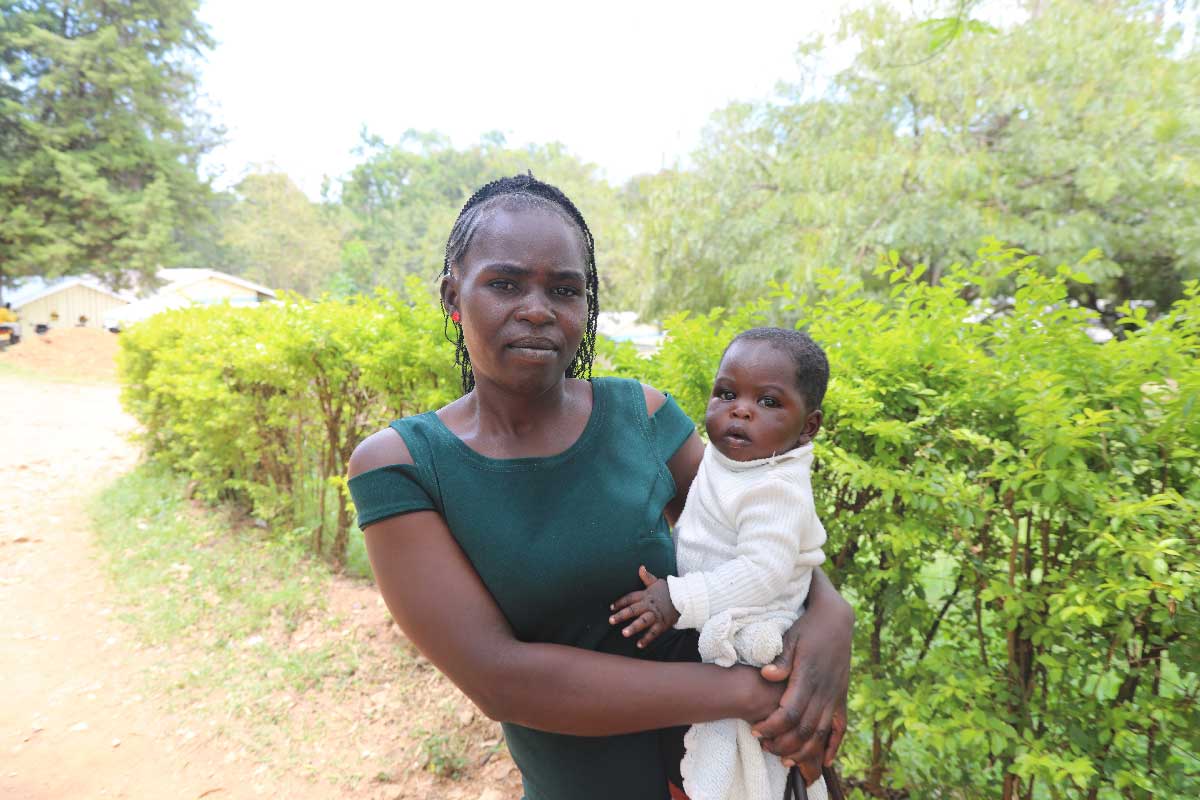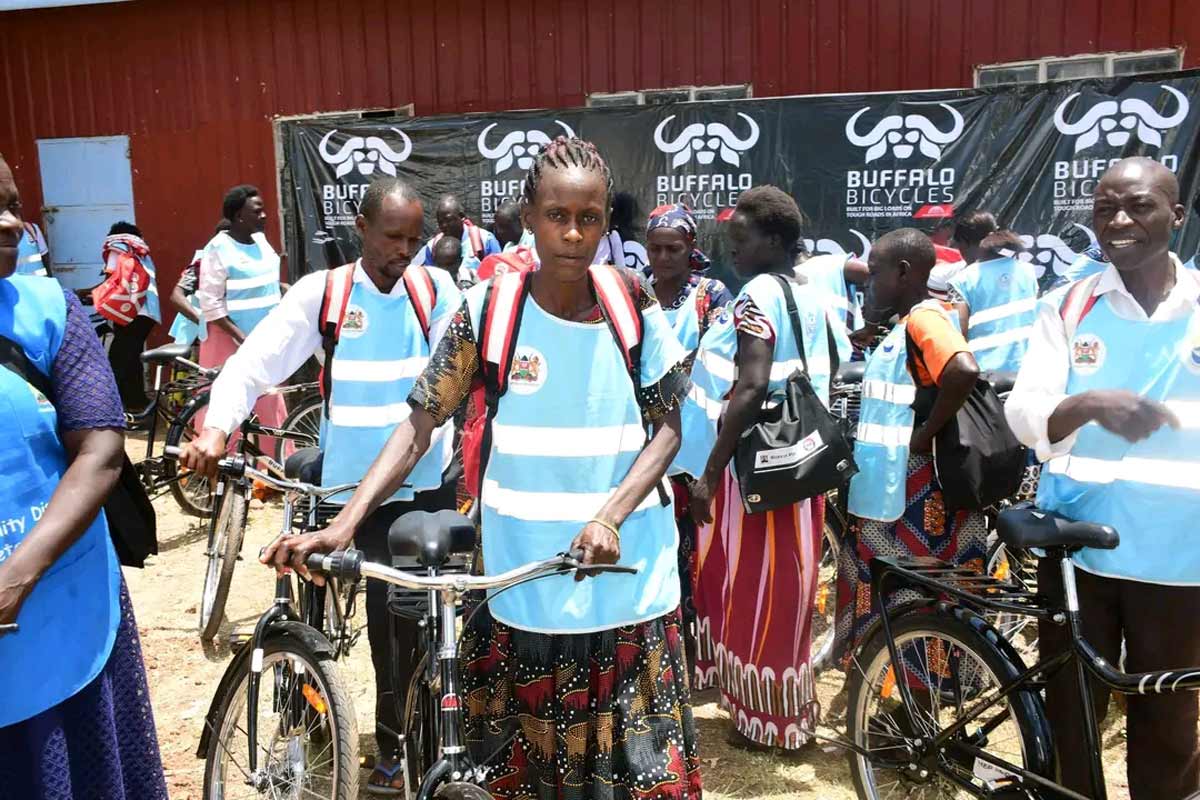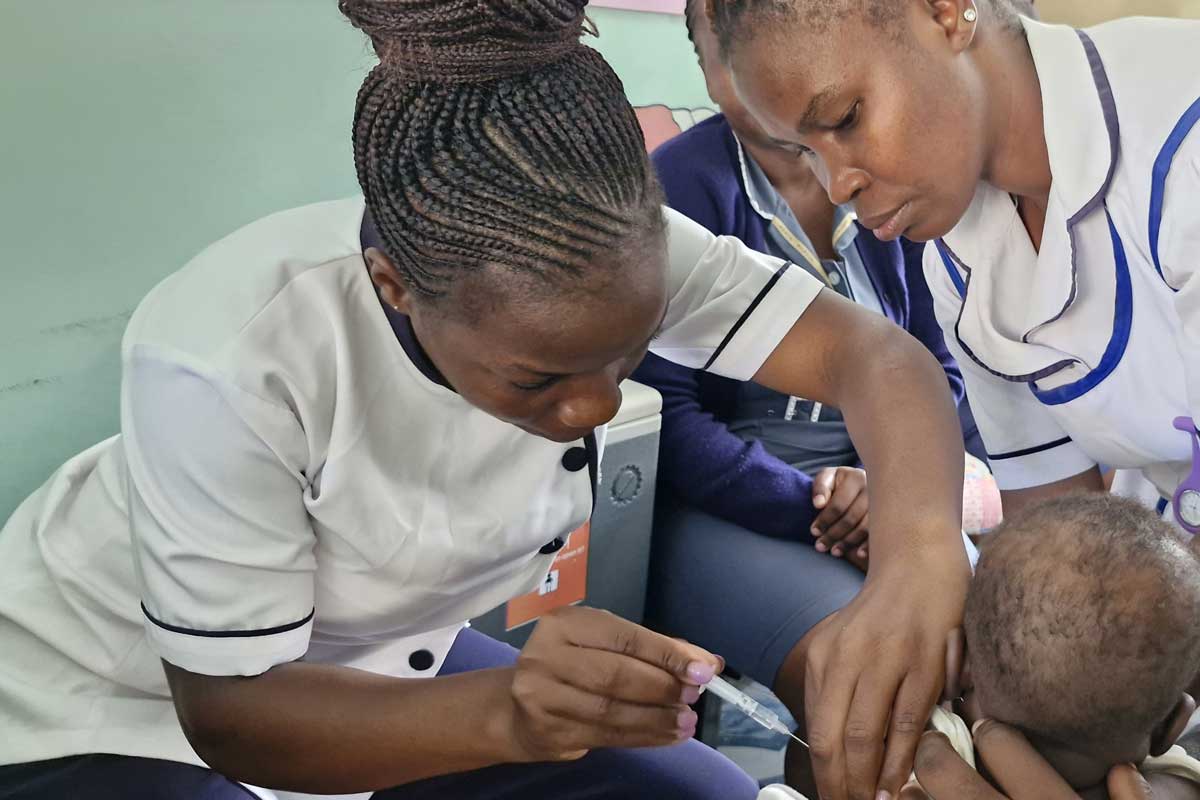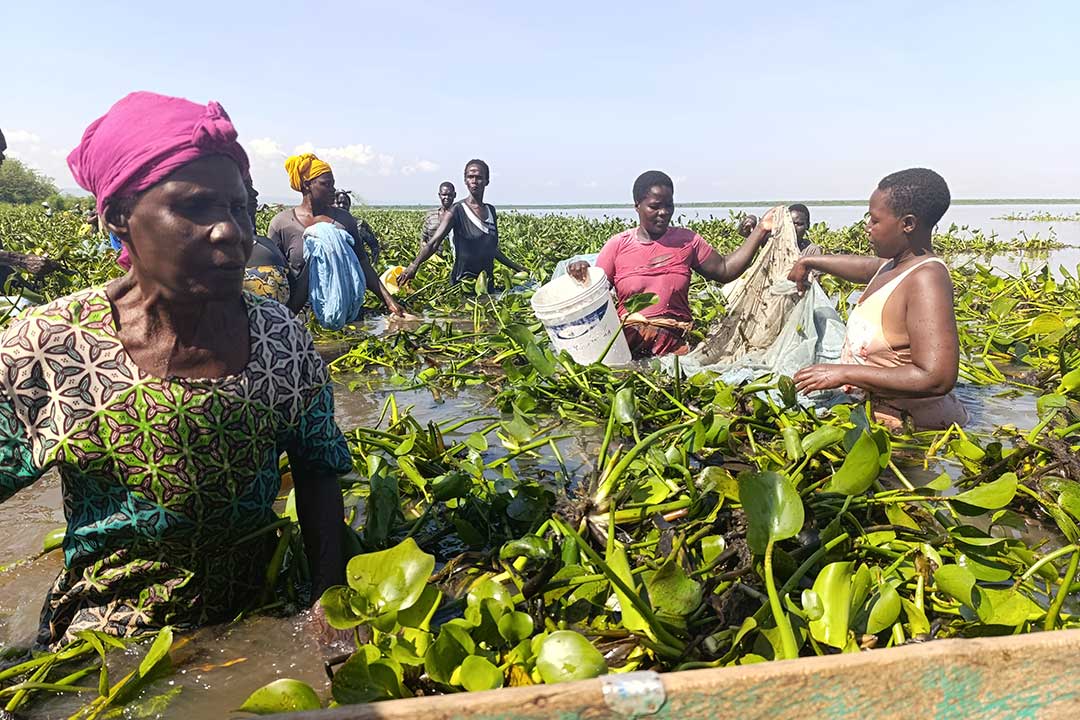“One death is catastrophic enough”: Kenyan men campaign for HPV vaccination
Three men from Siaya county are making it their mission to protect the next generation of girls in their village from cervical cancer.
- 3 November 2023
- 5 min read
- by Angeline Anyango
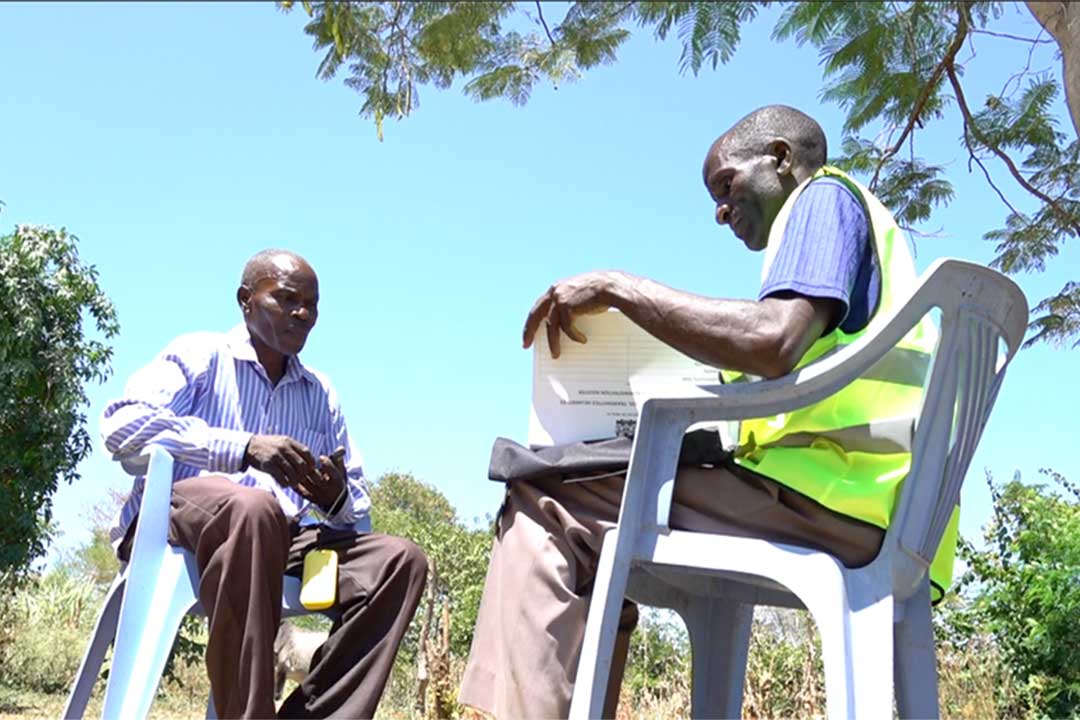
Under the shade of a towering mango tree in front of a brick house in a village called Ndigwa Siaya, located near the shores of Lake Victoria in Kenya, 54-year-old Moses Opiyo and 67-year-old Joseph Maganda go through a rumpled copy book.
The pages are tattered: an indicator of how often these men have leafed through the register, marking down the households they've been to during their campaign. Today, they record the names and contact details of household number 36.
“In such a small village, one death is catastrophic enough because the deceased was known by almost everybody. So, the impact of losing three people in two years, from the same disease, sparks fear that anybody could be next.”
– Moses Opiyo
For six months now, the duo, alongside their peer, Ambrose Adek, who was in hospital with pneumonia when VaccinesWork visited, have been running an energetic campaign to promote the uptake of the cervical-cancer blocking human papillomavirus (HPV) vaccine in the village.
Ndigwa is located on the fringes of Siaya county, in an area with just one health facility for an eight-kilometre radius.
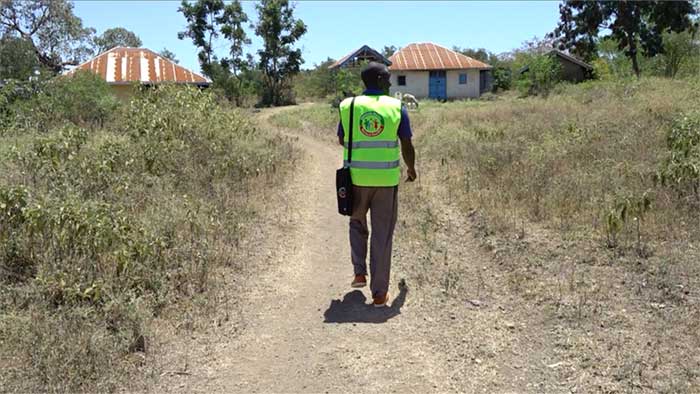
Credit: Laura Otieno
Every Saturday afternoon, the trio sets out to houses as mapped out by Opiyo, whose work as a community health volunteer has given him access to a database of local families.
A father of six girls, Opiyo is the founder of the group. He has witnessed the ravages of cervical cancer first-hand. Within his assigned area, which has a population of about 1,200 people, three women have died from cervical cancer in the last two years.
"In such a small village, one death is catastrophic enough because the deceased was known by almost everybody. So, the impact of losing three people in two years, from the same disease, sparks fear that anybody could be next" he says.
Maganda’s brush with the disease is more intimate still. His wife was diagnosed with cervical cancer in 2021. Though all his daughters are married, he says he would have loved for them to get vaccinated against HPV, to escape the fate that befell their mother.
Major threat
Cervical cancer is the deadliest cancer in Kenya, killing approximately 3,200 women in the country in 2020 alone.
Despite the urgency of the threat, and despite the fact that Kenya makes the vaccine available free of charge to girls aged 10 to 14, surveillance and immunisation rates fall short of national targets. In 2019, just one in ten women had been screened in the last five years. In 2020, a year into the nationwide rollout, only one third of the target population had been reached with one dose of HPV vaccine. The latest figures suggest that only 33% of girls have been reached with the government-recommended two doses.
Have you read?
According to Dr Gregory Ganda, Lake Region Economic Bloc Advisor on Health, uptake trends have been shaped by multiple forces. On the one hand, he claimed, the Kenyan government could have done more on civic education prior to rolling out the vaccine in 2019. On the other, certain faith institutions have acted as roadblocks, deliberately undermining the vaccine campaign.
“There is a big campaign by religious organisations about whether or not you need to vaccinate the girl, because according to them, since HPV is a sexually transmitted disease, they argue that instead of vaccinating girls against a sexually transmitted disease, you should otherwise teach them good morals,” Ganda explains.
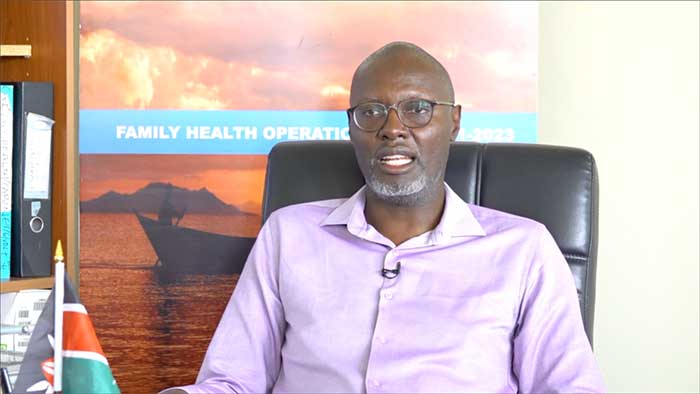
Credit: Laura Otieno
Ganda believes better and more up-to-date data will help Kenya, and the Lake Region, mount a more effective vaccination drive. “Even with the vaccination, the latest data is from around November 2022. We cannot rely on this to make decisions moving forward: we need to align our efforts on both levels of government, because an accurate number allows us to plan to know where we need to enhance campaigns for the uptake of the vaccine and screening,” he says.
Making men listen
Meanwhile, Opiyo, Maganda and Adek are taking matters into their own hands. Since they began urging their peers to issue consent for their daughters to get the HPV vaccine, 25 teenage girls have been vaccinated against HPV that might otherwise have missed out.
When my daughters asked us for permission as their parents for them to get the vaccine, I did not think twice. I sleep better knowing that my daughters are protected.”
– Maria Anjong
“Most men here do not get the extent of damage caused by cervical cancer, so we tell them how their own lives would be impacted,” says Opiyo, the community health worker. “Apart from the cost of treatment, we tell them how they would have to get someone to even do common household chores like cooking. It is unconventional, but it has worked so far.”
Maganda, on the other hand, uses his personal experience to bring more men on board. “I had to quit my job; all my children are grown, so nobody is around to look after my ailing wife. In this region, men aspire to retire and relax, but for me, I quit my masonry job and I am now farming here for very small returns because I cannot leave my wife alone,” he says.
His wife, still battling the condition, is constantly in need of care since she was discharged from hospital.
Going deeper
Opiyo and Maganda – who are holding the fort until Adek gets back – have no plans to stop their campaign. Still, they say they feel that the government could invest more in civic education – organising outreaches and deepening popular understanding of the vaccine.
Even for willing parents in Ndigwa village like Maria Anjong, whose two daughters have been vaccinated against HPV as a consequence of Opiyo and Maganda’s campaign, questions stemming from lack of knowledge remain.
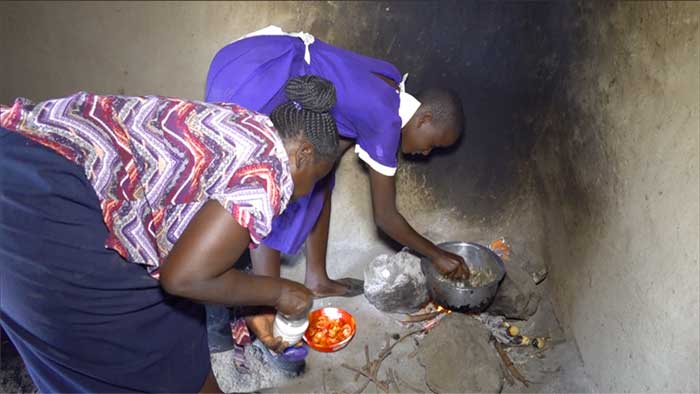
Credit: Laura Otieno
“I have seen my neighbours die, and two others are bedridden because of cervical cancer. When my daughters asked us for permission as their parents for them to get the vaccine, I did not think twice. I sleep better knowing that my daughters are protected,” she says. But Anjong also stresses that she has yet to fully understand how the vaccine works – and would appreciate access to experts who can answer her questions.
“For a long time, I believed that cancer is not preventable, I have only been told by Moses who said that the vaccine will prevent it for my daughter. What about me? I think we need the government to step in and teach us, just like they did with sensitisation on HIV/AIDS,” she says.
